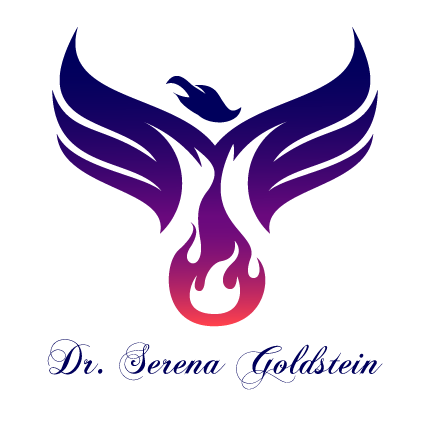Healthy hormones takes (healthy) guts- literally
“Every time you eat or drink, you are choosing to either feed or fight disease.”
Literally and metaphorically. We tend to think of the main systems involved in making hormones as the thyroid (makes thyroid hormone, our metabolism), and our reproductive organs, responsible for sex hormones like estrogen and testosterone. So much so that if we do experience hormone imbalance, treatments are targeted to replace or limit these hormones, sometimes directed at said organ systems like thyroid medication and birth control. Except there’s a few more organ systems involved in making and metabolizing hormones (why we don't always feel great on a replacement- or it works for a bit), and one of those being the gut. We don’t always have to have severe digestive disturbances, but even the more subtle bloated, heavy, ‘icky’, ‘blah’, ‘why can’t I eat ___ anymore?’ feeling are clues that your gut is trying to tell you something (perhaps along with a few other concerns).
Our gut has 4 pounds of gut bacteria, some good some bad, and it’s when those bad bacteria overpower the good is when they become problematic. It’s like how we have inflammation going on inside of us all the time to kill pathogens, but that is also balanced out by anti-inflammatory mechanisms. In Naturopathic medicine, a common phrase is that the gut is central to our health- literally, and we’ve known for thousands of years that everything starts in the gut (Hippocrates). So why not just treat the gut in everyone? First, an unhealthful diet will negate any treatment. Second, hormone imbalances, especially high estrogen which is very common in men and women, can wreak havoc on the gut so sometimes treatment needs to have a little more emphasis on the hormone piece (in a discussion of a plan with both physician and patient).
Elevated estrogen, for example, can loosen tight junctions of the gut that hold it together, altering all that gut bacteria. Our gut bacteria in balance help absorb certain vitamins and minerals, controls our immune system, and controls our mood, as most of our serotonin (our happy hormone- also helps with bowel movements), to some extent dopamine (our reward hormone, and melatonin (sleep hormone) are made in the gut. Further, there are various species that also control our weight loss efforts and thyroid function, as well as being able to detox estrogen (the estrobalome). Other factors that can alter function and those tight junctions include an unhealthful diet, characterized by sugar, carbs, fried foods, soda, and alcohol (to name a few), stress (emotional and/or physical), poor sleep, certain medications (i.e. NSAIDs), and food intolerance (common ones include gluten and dairy). Imbalanced gut bacteria has been linked to heart disease, obesity, blood sugar issues, autoimmune conditions (i.e. Hashimoto’s - type of hypothyroid), etc. Obesity and blood sugar issues, for example, participate in a positive feedback cycle like elevating estrogen (can also lowering progesterone & testosterone), and creating additional inflammation that further affects the gut.
So in other words gut and hormones can represent a chicken & egg scenario, except the question shouldn’t be ‘which one came first’, but how can we maximize treatment because we need to quell both at once for us to heal:
Aim for whole foods- Do a diet diary with yourself for a few days. How much are carbs, sugar, alcohol, fried foods, or processed foods really occurring. More than 5-6 times per week? Could you go a day without breads/processed foods? Or how many alcoholic drinks are you having in one sitting- could you eliminate one? Aim for at least half your plate filled with a dark leafy green (kale, spinach, collards) or cruciferous vegetable (broccoli, brussels sprouts, cauliflower) + about a quarter of your plate with protein (i.e. beans, fish, poultry, meat - think wild, grass fed, organic), and the other quarter with healthy fats like avocado. These feed your good gut bacteria, and provide a wide variety of vitamins and minerals to both detox and make (aka provide balance) to your hormones.
De-stress- I know.. so much easier said than done. Wherever you are now- notice your breath. Is it shallow? Race-y? Not quite there? Quick? Pause.. take a deep breath in through your nose for 4 counts, hold for 1, and out through your mouth for 8 counts. Do this 3 times. This deep breath activates your vagus nerve (connected to your diaphragm), which controls your parasympathetic system (rest, digest, & reproduce), in contrary to your sympathetic nervous system (fight or flight).
High quality probiotic + Berberine- A high quality probiotic is about a 5-10 billion dose, with a variety of species in the lactobacillus acidophilus and bifidobacterium species. Berberine (a yellow alkaloid substance, found in Oregon grape root) is anti-bacterial, anti-inflammatory, and helps heal the tight junctions while replacing the intestinal barrier. It can also helps improve cravings and balances gut bacteria that can help with weight loss efforts.
There are so many ways to go about working with hormone balance, and while there are natural ways too to address hormones directly, their impact on the body extends outside of obvious organs, hence why treatment also needs to encompass their systemic effects. It’s pretty common too for lab work to look somewhat normal and for people to not feel great, as this concern further demonstrates that we truly need to understand how the body works, and more specifically, what exactly is going on with our own physiology. Working with someone gives those extra set of eyes in understanding what’s really happening, and making treatment as specific and effective as possible. If you feel like your gut (‘trust your gut’ - pun very much intended!) is not quite right, and weight is just not coming off, let’s find a plan that honors your unique physiology!

